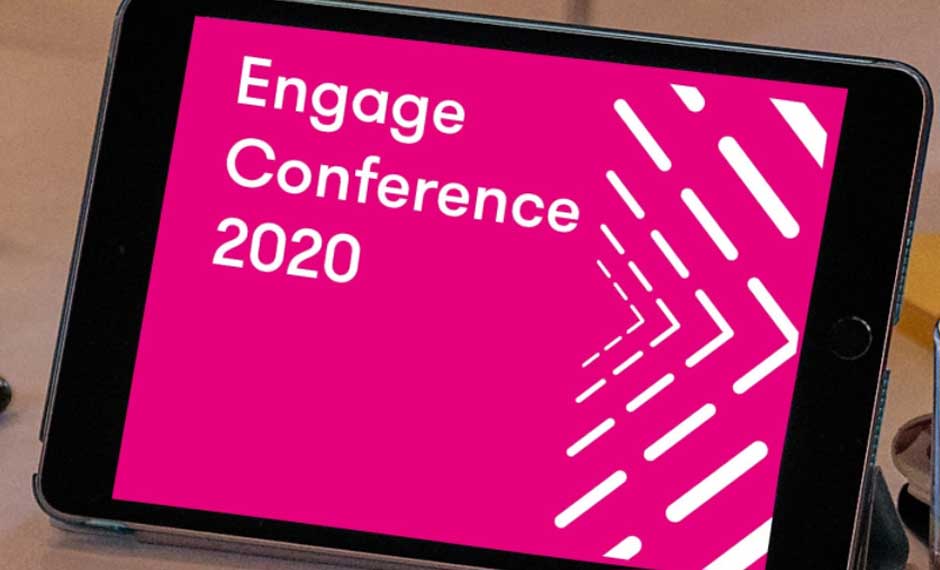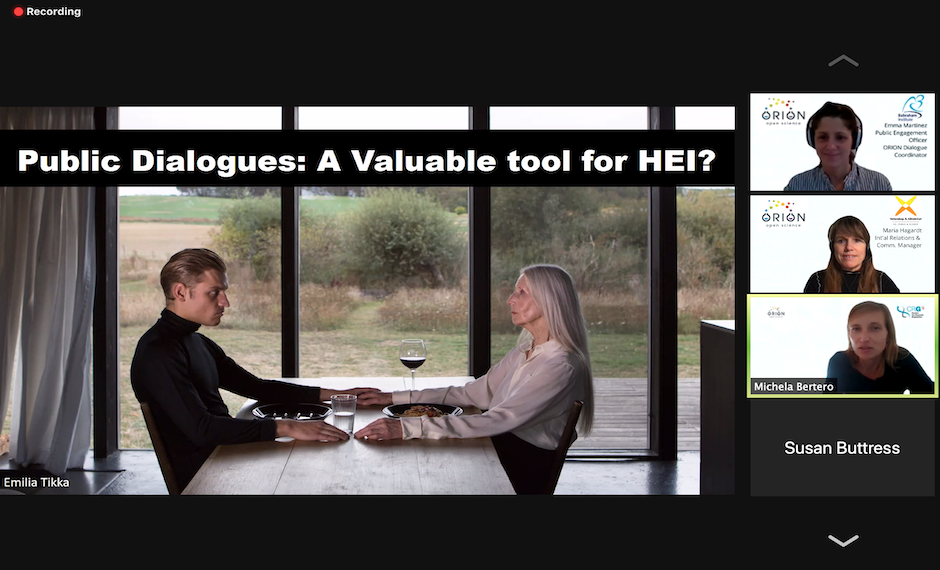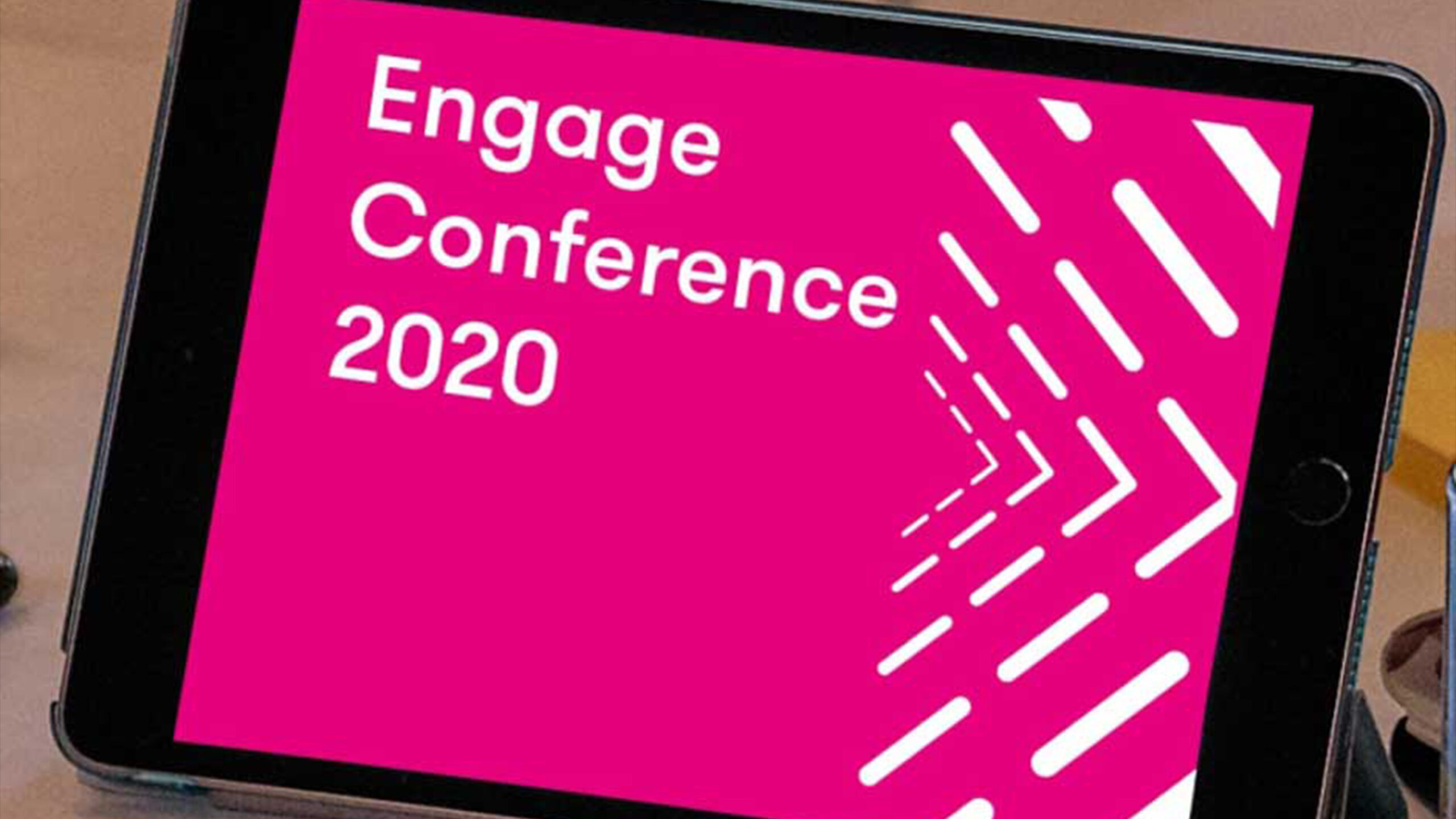This year’s Engage Festival, organised by the National Coordinating Centre for Public Engagement (NCCPE) in the UK, offered a week-long smorgasbord of discussions, workshops, inspiring examples of practice and networking for those working with public engagement. VA contributed to two sessions and gained lots of inspiration throughout the event held online from 30 November – 4 December.

The start of the week provided time for reflection on how much the Covid-19 pandemic has impacted and changed the way we live and work. Those working in public engagement have had to rapidly rethink the way they deliver their projects and respond to the needs of the communities that they work with. The pandemic has not only put science in the public spotlight but also highlighted the many inequalities that exist in society, both economic and health-related. At the opening plenary, Paul Manners, Director of NCCPE, highlighted three key ways of working that are particularly important at the moment: Working responsively; Being trustworthy and ethical; Acting on inclusion and inequality, which were explored in more depth throughout the week.
Perspectives on place
In the UK, place has now become a major focus for UK government policy, with calls to level up economic disparity across the UK. At a plenary session on ‘Perspectives on Place’, Richard Jones from the University of Manchester talked about opportunities in light of the new UK Research and Development Roadmap, which outlines the UK’s vision and ambition for science, research and innovation and its aim to address regional inequalities.
Sessions also highlighted good examples of place-based engagement in practice. Universities are constantly seeking to engage more closely with their local communities, and the last few years has seen a growth in UK universities signing Civic University Agreements. At one workshop, Wrexham Glyndwr University, a small HEI situated in Wales, described the innovative ways in which they have been co-creating their civic mission with partners and communities across North Wales.
Many speakers stressed the importance of co-creation, together with community partners, in order to ensure a diverse range of voices and better respond to local needs. One example of this in action is The Ideas Fund, a new grants scheme being launched by the British Science Association in January 2021 to provide funding and support for community projects related to mental well-being. Yvonne Campbell from the BSA explained how they had co-designed the funding programme together with community members and potential beneficiaries from a variety of backgrounds.
Ways to deliver responsible research and innovation were explored throughout the week and how research, innovation and engagement could be re-imagined in the light of COVID-19, Black Lives Matter and the climate emergency. Richard Owen, Professor in Innovation Management at the University of Bristol, stressed how crises can unwrite the future and lead substantial changes to the norms within society. There is now an opportunity to open up decisions about the future to include a much wider range of people.
Opportunities despite the pandemic
Despite the huge challenges presented by the Covid pandemic, many participants voiced hope and recognised opportunities to strengthen the collaboration between researchers and society. Aside from the issue of digital inclusion, it was highlighted that the Covid crisis has also had a democratising effect, allowing organisations to work in more flexible and responsive ways, and empowering people within communities to self-organise. The need for organisations to join up and empower people within communities to work effectively in light of increasing pressure on resources was also stressed.
There were also plenty of examples of inspiring public engagement initiatives highlighted during the week, many of which have been adapted for online delivery in light of restrictions associated with the pandemic. One example was the Evidence Chamber, an immersive theatre experience, developed by the Leverhulme Research Centre for Forensic Science at the University of Dundee together with a digital technology company, in which participants become members of a jury in a murder trial and are presented scientific evidence to inform their verdict. Those involved in the engagement initiative, which has been running in an online format since the summer, shared their learnings from the project and how it was also being used to collect research data to inform real-life courtroom practices.
VA contributed to the festival at two sessions. At Story Store Live, Helen Garrison presented VA’s citizen science projects – mass experiments – and described how through citizen science we are engaging young people in science across Sweden and Europe. The EU ORION-Open Science project also ran a session to share experiences of how public dialogues could be a tool for public engagement on societal issues such as genome editing, in which VA’s Maria Hagardt shared insights from the public dialogues that VA arranged in Sweden.

There is a vibrant community of public engagement professionals working across the UK, and Engage provides a forum for them to come together and share experiences,” commented Helen Garrison. “Attending on behalf of VA, gives us a great insight into current developments in the UK and lots of inspiration to inform our work. The online format worked extremely well, allowing more people to attend, and the huge amount of discussion between participants in the chat rooms was testament to this.
Highlights from the Engage Festival can be viewed on the NCCPE’s YouTube channel.

